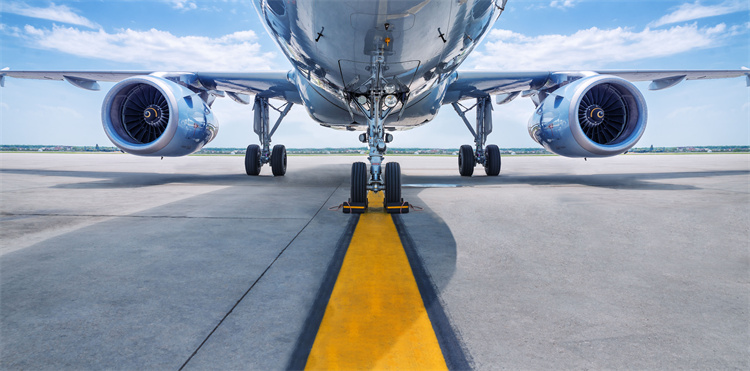Indian Air Cargo Market Insights and Trends for 2025

The Indian air cargo market is undergoing a significant transformation. Recent statistics reveal an 18.1% surge in cargo throughput at Indian airports in July 2024 compared to the previous year. Major hubs like Delhi and Mumbai have experienced substantial growth, with international demand increasing by 24.4%. Grasping these trends is essential for businesses looking to capitalize on opportunities in 2025. The synergy between the air cargo market and industries such as e-commerce and pharmaceuticals is fueling this growth. This dynamic landscape offers a promising future for the air cargo market in India.
Current State of the Air Cargo Market in India
Market Size and Growth
The Air Cargo Market in India has been on a remarkable growth trajectory. Recent data from the Airports Authority of India (AAI) shows a 7% year-on-year increase in FY24, with volumes reaching 3.4 million tonnes. This growth is driven by the booming e-commerce sector, which demands swift and reliable delivery services. The market size is expected to increase by USD 63.5 billion at a CAGR of 5.91% between 2023 and 2028. The Asia-Pacific region, including India, has shown strong performance with a 17.6% growth in demand.
Several factors contribute to this upward trend. The rise in internet penetration and a young demographic inclined towards digital shopping have fueled the e-commerce boom. The need for better infrastructure to meet delivery demands has also played a significant role. The Indian air cargo industry is recovering steadily from the Covid-19 pandemic. Freight traffic increased by 3.2% in 2022-23 compared to the previous year.
Major Players and Market Share
The Air Cargo Market in India features several leading companies. These players dominate the landscape with their extensive networks and advanced logistics solutions. Companies like Blue Dart, SpiceXpress, and Air India Cargo are key contributors to the market's growth. Foreign carriers also play a significant role, capturing around 95% of the international air cargo market share.
Market share distribution highlights the competitive nature of the industry. Domestic players are striving to increase their share by enhancing service quality and expanding their networks. The dominance of foreign carriers presents both challenges and opportunities for local companies. The focus remains on improving efficiency and meeting the growing demand for air cargo services.
Regulatory Environment
The regulatory environment significantly impacts the Air Cargo Market in India. Key regulations govern various aspects of the industry, including safety standards, customs procedures, and environmental compliance. The government actively engages with industry stakeholders to discuss proposals aimed at liberalizing air cargo processes. These initiatives aim to boost overall volumes and streamline operations.
Recent policy changes have had notable effects on the market. Efforts to simplify customs procedures and reduce bureaucratic hurdles have improved efficiency. The focus on sustainability and green initiatives aligns with global trends, promoting environmentally friendly practices. The regulatory landscape continues to evolve, shaping the future of the air cargo industry in India.
Emerging Trends in 2025

Technological Advancements in the Air Cargo Market
Technology plays a crucial role in enhancing efficiency within the Air Cargo Market. Companies now use advanced technologies like AI, IoT, and data analytics to optimize cargo operations. These tools help streamline processes and improve accuracy in cargo handling. Robotics and automated systems have become common in warehouses. These innovations reduce human error and increase productivity.
Innovations in cargo handling and logistics continue to reshape the Air Cargo Market. Drone delivery and blockchain technology offer new possibilities for faster and more secure transactions. Predictive analytics helps companies anticipate demand and manage resources effectively. The integration of these technologies leads to seamless movement with minimal wastage.
Sustainability and Green Initiatives
Efforts towards reducing carbon footprint have gained momentum in the Air Cargo Market. Companies focus on sustainable aviation fuels and carbon offset programs. Fleet modernization efforts aim to achieve net-zero emissions by 2050. These initiatives align with global trends and promote environmentally friendly practices.
The adoption of sustainable practices extends to biodegradable and energy-efficient technology. Air cargo handling, storage, and transportation benefit from these changes. Companies prioritize operational efficiency to minimize environmental impact. This multi-faceted approach addresses the industry's sustainability challenges.
E-commerce and Its Impact
The growth of e-commerce drives demand for air cargo services. Consumers expect fast and reliable delivery, increasing pressure on logistics providers. The Air Cargo Market adapts to meet these expectations by expanding networks and improving service quality. The synergy between e-commerce and air cargo fuels market growth.
Challenges and opportunities in e-commerce logistics present unique scenarios. Companies face hurdles like infrastructure limitations and regulatory complexities. However, these challenges also offer opportunities for innovation and improvement. Businesses that navigate these obstacles can capitalize on the growing e-commerce sector.
Challenges and Opportunities

Infrastructure and Capacity Constraints
The Air Cargo Market in India faces several infrastructure challenges. Many airports lack modern facilities, which limits their ability to handle large volumes efficiently. Outdated infrastructure often leads to delays and increased operational costs. The absence of automation in cargo handling processes further exacerbates these issues. Complex regulatory procedures also slow down operations, affecting the market's overall efficiency.
Opportunities for infrastructure development abound in the Air Cargo Market. Investing in modernizing airport facilities can significantly enhance capacity and efficiency. Automation in cargo handling processes can reduce human error and improve productivity. Streamlining regulatory procedures will also facilitate smoother operations. These improvements can position India as a leading freight market globally.
Competition and Market Dynamics
The competitive landscape in the Air Cargo Market is intense. Foreign carriers dominate the international segment, capturing a significant market share. Domestic players strive to increase their presence by enhancing service quality and expanding networks. The synergy between air cargo services and e-commerce presents unique growth opportunities. Companies that adapt to market dynamics can gain a competitive edge.
Strategies for gaining a competitive advantage include leveraging technology and innovation. Companies can use advanced technologies like AI and IoT to optimize operations. Expanding route networks and improving service quality can attract more customers. Focusing on sustainability and green initiatives can also differentiate companies in the market. These strategies can help businesses thrive in a competitive environment.
Future Opportunities
Potential areas for growth and investment in the Air Cargo Market are vast. The booming e-commerce sector drives demand for fast and reliable delivery services. Investing in technology and infrastructure can support this growing demand. The need for sustainable practices opens avenues for innovation and development.
Emerging markets and sectors offer new opportunities for expansion. The pharmaceutical industry requires specialized logistics solutions, creating demand for air cargo services. The rise of digital shopping among a young demographic fuels the e-commerce sector. Companies that tap into these emerging markets can capitalize on the Air Cargo Market's growth potential.
JUSDA's Role in the Indian Air Cargo Market
JUSDA's Air Freight Services
Route Network and Expansion Plans
JUSDA has carved a niche in the air cargo market with its extensive route network. The company operates multiple air cargo flights, ensuring timely delivery of essential goods. JUSDA collaborates with RSA Global in India to enhance connectivity. This partnership strengthens JUSDA's presence in the Indian market. The expansion plans include establishing new routes to meet growing demand. JUSDA focuses on strategic locations to optimize logistics operations.
Cost Optimization and Flexibility
Cost optimization remains a key strength for JUSDA. The company uses innovative approaches to manage expenses effectively. JUSDA employs advanced technology to streamline processes. This results in significant cost savings for customers. Flexibility in operations allows JUSDA to adapt to market changes. The company offers customized solutions to cater to diverse client needs. These strategies ensure JUSDA maintains a competitive edge in the industry.

JUSDA Solutions
To provide you with professional solutions and quotations.
Technological Integration by JUSDA
Use of Big Data, IoT, and Cloud Platforms
JUSDA integrates cutting-edge technology to enhance logistics efficiency. The use of big data enables precise decision-making. IoT devices provide real-time tracking of shipments. Cloud platforms facilitate seamless communication across the supply chain. These technologies improve operational accuracy and speed. JUSDA leverages AI to optimize resource allocation. This technological prowess positions JUSDA as a leader in supply chain management.
JusLink Platform for Efficient Resource Utilization
The JusLink platform exemplifies JUSDA's commitment to innovation. This intelligent system streamlines supply chain operations. JusLink integrates suppliers, manufacturers, and service providers. The platform enhances resource utilization through real-time collaboration. JUSDA ensures efficient logistics management with JusLink. The platform supports complex customer demands with ease. JusLink's capabilities reinforce JUSDA's role in the Indian air cargo market.
The Indian air cargo market in 2024 showcases remarkable growth and innovation. Major airports like Delhi and Mumbai have seen significant increases in throughput, reflecting robust international demand. Technological advancements such as drone delivery and predictive analytics are transforming operations. These innovations enhance efficiency and customer experiences. Sustainability remains a key focus. Efforts to reduce carbon footprints and adopt green practices continue to shape the industry. The future of air freight services promises adaptability and collaboration. This dynamic landscape offers exciting opportunities for businesses to thrive.
See Also
Exploring the Latest in Sea Freight Logistics for 2024
Understanding the Influence: Trends in Logistics Risks
The Future of Logistics: AI's Revolutionary Impact on Supply Chains
Unlocking Opportunities: Demystifying AI's Role in Logistics
Revealing Tomorrow's Supply Chain: Insights on AI Integration
